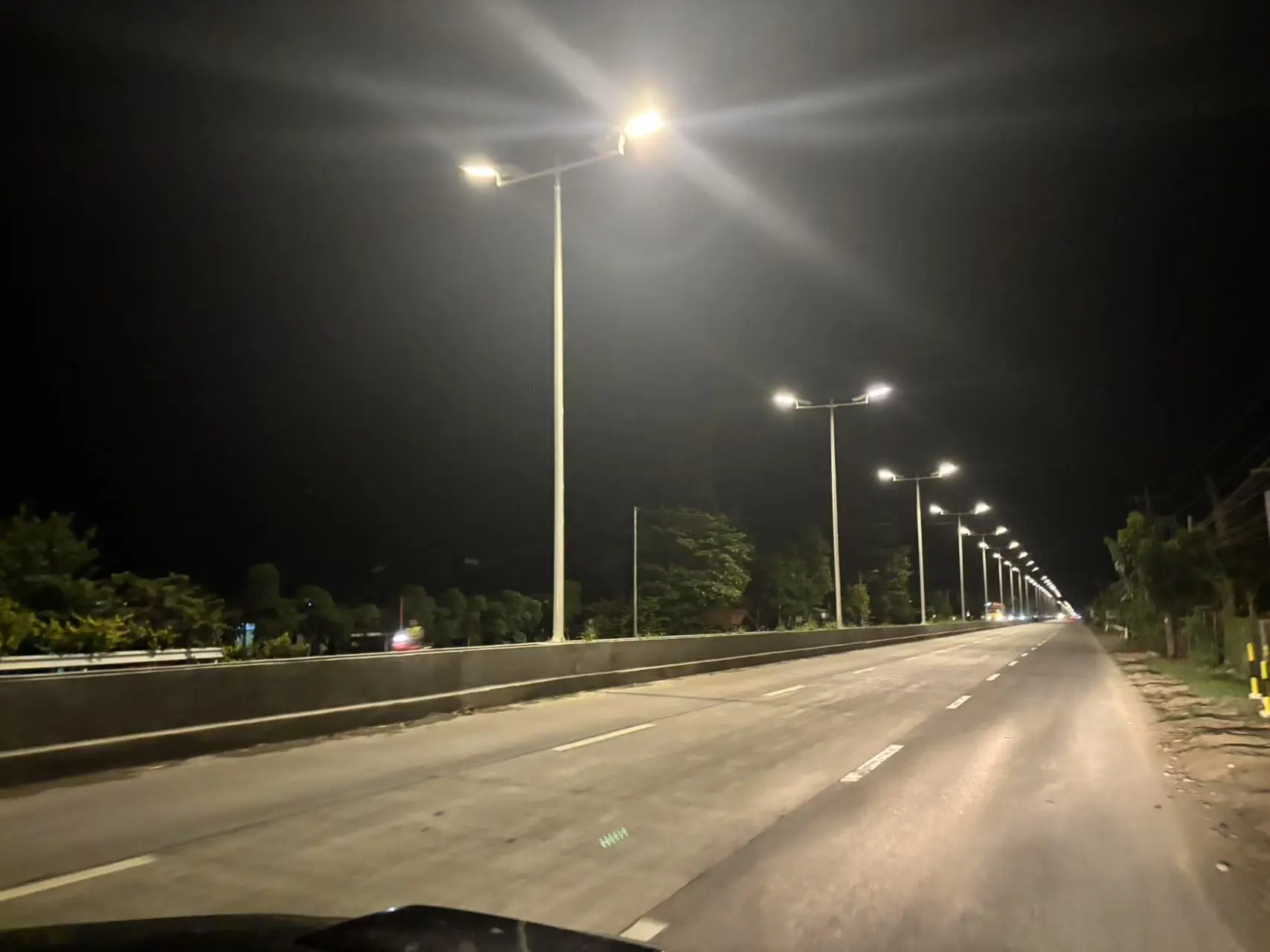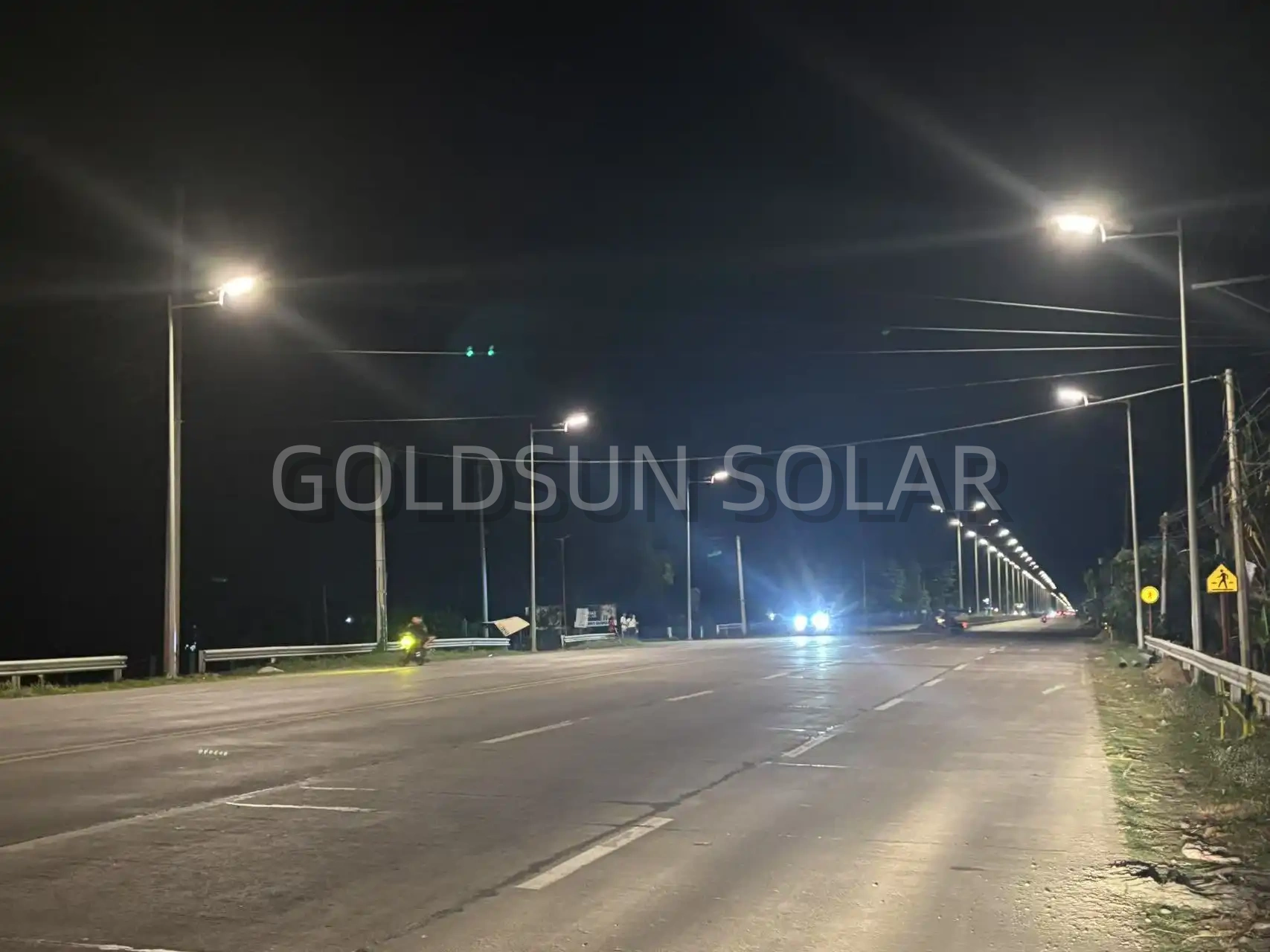How to Choose Integrated Solar LED Street Light Supplier?
Selecting the right integrated solar LED street light supplier is crucial for ensuring the success of your lighting project, whether for urban development, rural electrification, or commercial installations. These sustainable lighting solutions combine solar panels, LED lights, batteries, and controllers into one compact unit, eliminating the need for complex wiring and grid connections. With the growing demand for sustainable energy solutions worldwide, finding a reliable manufacturer who delivers quality products can significantly impact the performance, durability, and overall cost-effectiveness of your investment.

What Features Should I Look for in Quality Integrated Solar LED Street Lights?
Efficient Solar Panel Technology
When evaluating integrated solar LED street lights, the solar panel's efficiency is paramount to the system's overall performance. High-quality integrated solar LED street lights utilize monocrystalline or polycrystalline silicon solar panels with conversion rates exceeding 21%. These panels should be positioned at optimal angles to maximize solar energy collection. Quality suppliers use tempered glass with anti-reflective coating and incorporate MPPT (Maximum Power Point Tracking) controllers that optimize power harvest, increasing efficiency by up to 30% compared to traditional controllers. This technology ensures reliable performance even during extended periods of cloudy weather, making it crucial to select suppliers who invest in premium panel technology.
Battery Life and Storage Capacity
The battery system determines how long your integrated solar LED street lights can operate during nighttime or overcast conditions. Premium suppliers utilize lithium iron phosphate (LiFePO4) batteries with capacities ranging from 12.8V/30Ah to 12.8V/60Ah, offering 2000-3000 charge cycles and lifespans of 5-8 years. These advanced batteries maintain performance in extreme temperatures (-20°C to 60°C), unlike cheaper lead-acid alternatives. Quality suppliers implement smart battery management systems that protect against overcharging and deep discharging. When selecting a supplier, inquire about battery specifications, including depth of discharge ratings—premium integrated solar LED street lights typically allow for 80-90% DoD without damage. Superior systems should offer 3-5 days of autonomy, ensuring reliable illumination regardless of weather patterns.
Lighting Performance and Control Systems
The LED component and control system determine the actual lighting performance of integrated solar LED street lights. Top suppliers implement high-luminous-efficiency LEDs (150-180 lm/W) with color temperatures between 3000K-5000K. Quality integrated solar LED street lights feature programmable controllers offering multiple lighting modes, including dusk-to-dawn operation, time-controlled dimming, and motion-sensing capabilities that can extend battery life. Premium fixtures utilize precision-designed optics that direct light where needed, eliminating wasteful light pollution. Look for suppliers that provide photometric data and IES files for their integrated solar LED street lights. Advanced systems include remote monitoring capabilities via GPRS, WiFi, or Bluetooth, enabling real-time performance tracking without physical access to the fixtures.
How Can I Verify the Reliability of an Integrated Solar LED Street Light Manufacturer?
Certification and Compliance Standards
Reputable integrated solar LED street light manufacturers demonstrate their commitment to quality through comprehensive certification programs. Premium suppliers should possess ISO 9001:2015 certification, indicating robust quality management systems. For integrated solar LED street lights specifically, look for products certified with IEC 62108 for solar modules, IEC 62133 for battery safety, and IEC 60598-2-3 for luminaire performance. Top manufacturers also obtain ROHS compliance and IP65-IP68 ratings confirming water and dust resistance. Industry leaders secure certification from renowned testing laboratories like UL, TÜV, or SGS. When evaluating potential suppliers, request detailed test reports covering mechanical load testing, accelerated weathering tests, and thermal cycling tests. Manufacturers who readily provide this documentation demonstrate transparency and confidence in their products.
Manufacturing Capabilities and Quality Control
The manufacturing facilities and quality control processes significantly impact product reliability. Leading integrated solar LED street light manufacturers invest in automated production lines with multiple quality checkpoints throughout assembly. Inquire about production capacity, typical lead times, and ability to scale production. High-end manufacturers implement strict incoming quality control procedures for all components, especially critical elements like LEDs, solar panels, and batteries. Reputable manufacturers conduct aging tests where finished integrated solar LED street lights operate continuously for 72-168 hours before shipping. Factory visits provide invaluable insights into a manufacturer's attention to detail and commitment to quality. Manufacturers who maintain detailed production records and component traceability systems demonstrate a serious commitment to product quality.
Track Record and Project Portfolio
A supplier's historical performance provides crucial insights into the real-world reliability of their integrated solar LED street lights. Established manufacturers with extensive project portfolios demonstrate both product durability and business stability. Request case studies and references for projects similar to yours in scale and environmental conditions. Contact references directly to inquire about post-installation support, product performance, and any failure rates experienced. Reputable manufacturers track failure rates and continuously improve their designs based on field performance data. Ask potential suppliers about their field failure rate (typically less than 0.5% annually for premium integrated solar LED street lights). Investigate the manufacturer's market presence in regions with environmental conditions similar to your installation site—success in comparable climates suggests their designs are appropriate for your needs.
What Should I Know About Warranty and After-Sales Service for Integrated Solar LED Street Lights?
Comprehensive Warranty Terms
Understanding warranty coverage is essential when selecting an integrated solar LED street light supplier. Premium suppliers typically offer 5-8 year warranties covering all major components, though terms may vary for different system elements. Look beyond the headline warranty period to examine specific coverage details. Quality manufacturers provide clear documentation specifying which components are covered, acceptable failure rates, and definitions of what constitutes a warrantable failure. Different components often carry different warranty periods—solar panels might be warranted for 10-25 years, batteries typically carry 3-8 year warranties, and LED modules generally carry 5-10 year warranties. Be attentive to warranty exclusions and conditions that might void coverage. Reputable manufacturers maintain transparent warranty claim processes with reasonable response timeframes.
Technical Support and Maintenance Services
The availability and quality of technical support significantly impact the long-term performance of integrated solar LED street lights. Leading suppliers provide comprehensive support throughout the product lifecycle, beginning with pre-installation consultations. These suppliers offer detailed installation manuals, training videos, and sometimes direct installation supervision for larger projects. For systems with remote monitoring capabilities, top manufacturers provide software platforms that allow real-time performance monitoring and predictive maintenance alerts. Technical support should include access to knowledgeable engineers who can troubleshoot complex issues. Evaluate whether potential suppliers maintain adequate spare parts inventories to support timely repairs throughout the warranty period and beyond.
Spare Parts Availability and System Upgradability
Long-term serviceability is critical when selecting integrated solar LED street light suppliers. Superior manufacturers design their products with modular construction, allowing individual components to be replaced without disposing of the entire system. Inquire about their commitment to maintaining compatible spare parts availability beyond the warranty period—leading manufacturers typically guarantee parts availability for at least 10 years after product discontinuation. Forward-thinking manufacturers design their systems with upgrade paths that accommodate technological advancements, particularly in battery and LED technology. Some offer retrofit programs where older systems can be upgraded with newer components rather than completely replaced.
Conclusion
Selecting the right integrated solar LED street light supplier requires careful consideration of product quality, manufacturer reliability, and after-sales support. By evaluating solar panel efficiency, battery performance, lighting capabilities, certification standards, manufacturing processes, and warranty terms, you can identify suppliers who deliver truly sustainable lighting solutions. Remember that initial purchase price represents only a fraction of total ownership costs, making quality and reliability paramount for long-term success.
Yangzhou Goldsun Solar Energy Co., Ltd. is a renowned supplier of solar street lights, producing between 10,000 and 13,500 units annually. Our products are certified with ISO9001, CE, RoHS, SGS, and IEC 62133 standards, ensuring top quality. With over 500 solar street light projects completed in over 100 countries, including UNDP, UNOPS, and IOM, we provide solutions that are reliable and efficient. All our products come with a 5-year warranty and can be tailored to your requirements with OEM production. We offer fast delivery and secure packaging. Reach out at solar@gdsolarlight.com for more details.
References
1. Johnson, R. T., & Williams, P. (2023). Advancements in Integrated Solar LED Street Light Technology. Journal of Sustainable Lighting, 45(2), 112-128.
2. Zhang, H., & Liu, Y. (2024). Quality Assessment Parameters for Solar Street Lighting Systems. Renewable Energy Solutions, 18(3), 245-261.
3. Patel, S., & Mehta, R. (2023). Comparative Analysis of Battery Technologies for Solar Lighting Applications. International Journal of Energy Storage, 29, 78-93.
4. Wilson, D., & Thompson, K. (2024). Certification Standards for Outdoor Solar Lighting: A Global Review. Energy Policy Review, 52, 310-325.
5. Martinez, C., & Rodriguez, J. (2023). Life Cycle Cost Analysis of Integrated Solar Street Lighting Systems. Sustainable Cities and Society, 32, 178-192.
6. Chen, L., & Wong, F. (2024). Smart Control Systems for Energy-Efficient Public Lighting. IEEE Transactions on Smart Grid, 15(4), 428-443.


Yangzhou Goldsun Solar Energy Co.,Ltd.
